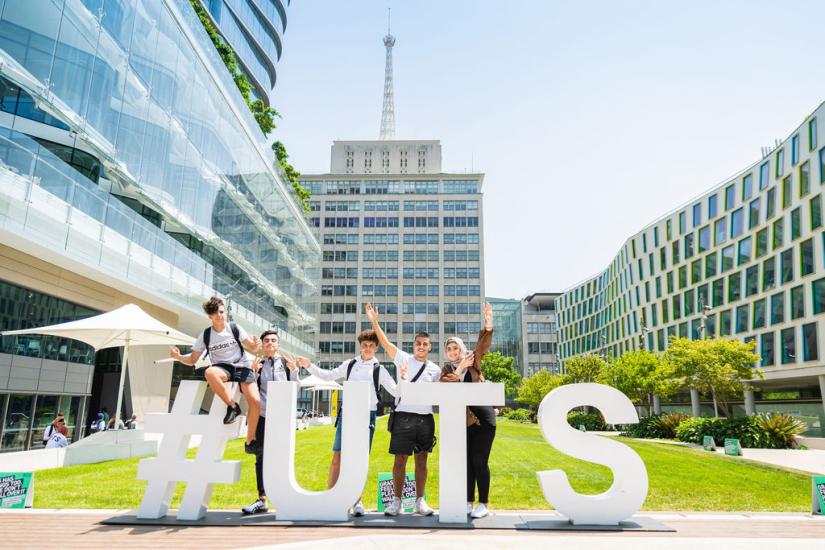At the heart of the Universities Accord is the notion of providing educational opportunity and choice for all Australians, writes UTS Vice-Chancellor Professor Andrew Parfitt.

At the heart of the Universities Accord final report is the notion of providing educational opportunity and choice for all Australians. Achieving this will be crucial to ensure that Australia has access to the skills and capabilities we need for our future prosperity, and to shape the type of inclusive society we aspire to be.
It specifically calls for greater participation in higher education from traditionally under-represented groups, including the aim of having 20 per cent of students from the lowest socio-economic status (SES) backgrounds attend university.
It’s a noble aspiration, one that the university sector as a whole has thus far failed to realise, despite sustained effort and some notable successes. So how will this latest ambition ultimately succeed?
Individual universities have a responsibility for building access and opportunity for students like Zara*.
Zara migrated to Australia with her family as a child. Her parents, educated overseas, had no resources to expose her to higher education here in a way that would support her decision making.
How then can universities inspire Zara, and others from low SES backgrounds, to access higher education? And crucially – how can they do this in a way that genuinely expands the pool of students entering university?
As the Universities Accord panel rightly concedes, there’s work to be done across all parts of the education system.
At the University of Technology Sydney, we established the U@Uni Academy to provide crucial access and transition support for low SES students from 25 public schools in southwestern Sydney.
More than half of the students identified as the first in their family to go to university, 1.8 per cent as First Nations and around 23.1 per cent as students from refugee backgrounds.
Students do not need an ATAR to gain access to UTS through this pathway. Instead, they participate in a two-year program that builds an evidenced based evaluation of their general capabilities. Our U@Uni Academy develops and demonstrates the broader capabilities of potential students and targets those who would be unlikely to gain admission under the traditional approach at UTS.
In achieving the Accord’s ambitious targets for students from under-represented backgrounds accessing higher education it is important that universities focus also on “growing the pie” and improving access for students who were not already on a path to gain entry to university.
Students commencing UTS through the U@Uni Academy pathway are monitored and supported through the First Year Success initiative in which they are offered case-managed academic and wellbeing support where needed. It works – our students’ success rates are on par with low SES success rate across the sector, despite their lack of an ATAR.
In its third year, we’ve successfully enrolled 867 students, including Zara, in full time study at UTS.
While we’re proud of the success of U@Uni, UTS could do more – which is why the Accord panel is right to also suggest reforms so that the universities who genuinely expand participation are supported to do so.
In Australia currently, 15 of our 42 universities educate almost 60 per cent of the total low SES student population. I want to be clear – UTS is not one of them. We are trying hard with the resources we have available, and our focus as a university on how technology empowers the professions of the future makes it important that we do widen access to our offerings.
The needs-based funding model put forward by the Accord panel recognises there are different costs in attracting, teaching and ensuring the success of low SES, regional and Indigenous students.
Through the use of bonuses, it incentivises higher education providers to focus not just on enrolling these students in greater numbers but on their successful completion, given they are at higher risk of dropping out. Access without success is not opportunity; it isn’t equity.
Making it more financially viable for universities to teach these students is matched by recommendations to provide better living and other support, and more work integrated learning, to the students themselves. One of the biggest reasons low SES students drop out is simply because they struggle to maintain much needed paid employment with their university studies. In a high cost of living environment this is even more acute.
As the Accord report rightly points out, we cannot continue to have our nursing and teaching students working for long stints, and for free, given the cost-of-living pressures facing so many people, let alone students from low SES backgrounds.
I also welcome recommendations to ensure student income support is adequate to meet basic living standards while studying, to make student contributions fairer and reducing the burden of HELP loans. These sensible suggestions put together, will all help disadvantaged students see a future in which they could be a university student and graduate.
The Education Minister is right to expect that for Australia to be a prosperous, fair and egalitarian society it should have a university system in which all Australians can successfully participate.
The comprehensive response from the Universities Accord panel, with a reinvigorated focus on improving access, participation and success for under-represented cohorts in university study deserves support – and a coherent plan for long term implementation and investment. Education is transformational. It empowers us to strive and make our dreams realities. We need to make Zara’s dream a reality for many others.
*Zara is not her real name.
Professor Andrew Parfitt is the Vice-Chancellor of the University of Technology Sydney.
This opinion piece was first published in The Australian. Read the original article.

